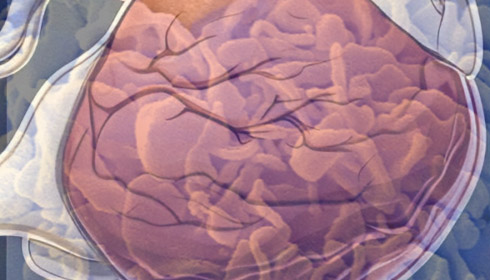
Biden’s Cancer Diagnosis Rekindles Tough Questions on Health, Leadership, and Legacy
The recent disclosure that Joe Biden, the former President of the United States, has been diagnosed with advanced prostate cancer has sparked rare political unity – despite rising concerns about age, health, and the future of political leadership in America.
Doctors discovered the disease while studying urinary issues and a lesion in Biden's prostate. Medical examinations proved that the cancer had spread to his bones. This stage, known as metastatic prostate cancer, signifies that the cancer has spread beyond the prostate gland. When cancer penetrates the bones, treatment gets more complicated, and the sickness becomes more difficult to manage.
Biden, 82, has previously faced various health difficulties, including skin cancer and a precancerous growth in his intestines. This new diagnosis has moved national attention to the vulnerability of ageing political figures—and the structures they help construct.
What distinguishes this time is the tone of the public response. Donald Trump, his opponent and the man who defeated him in the 2024 election, wrote a surprisingly touching tribute online, writing, "Melania and I are heartbroken... We wish Joe a quick and successful recovery. It's a dramatic contrast to Trump's frequent attacks on Biden's age and energy levels throughout their campaign battles.
Vice President Kamala Harris, who previously shared the ticket with Biden, wrote, "Joe is a fighter... I know he will face this challenge with strength, resilience, and optimism." While her sentiments were genuine, they also served as a reminder to the public of Biden's personal and political weight, even outside of the White House.
However, there is a more profound issue underneath this display of oneness. Biden is no longer the president, but he remains a key figure in the Democratic Party. Many people still look to him for advice, especially after a bitter electoral defeat and growing tensions in the party ranks. His condition adds to the party's uncertainties as it rethinks its identity and path.
Biden's personal connection to cancer is deep. His eldest son, Beau Biden, died of brain cancer in 2015. That personal loss inspired Biden to start the Cancer Moonshot effort in 2016, a national aim to cut cancer deaths in the United States by 50% over the next 25 years. He reaffirmed this objective as president in 2022, describing it as "an American moment to prove... we can do really big things."
Now, the man who spearheaded the country's cancer campaign is fighting the disease. The irony is not lost on the public. Some see it as a terrible reminder of the limitations that even the strongest people confront while dealing with disease.
Prostate cancer is among the most frequent cancers in men. According to the American Cancer Society, around one in every eight men will be diagnosed with prostate cancer throughout their lifetime. However, metastatic prostate cancer, particularly when it spreads to the bones, is more harmful and difficult to treat. Treatments frequently include hormone therapy (to decrease the growth of cancer cells), radiation, or chemotherapy, all of which can have major side effects and impair a person's strength and mobility.
Although Biden is no longer in office, his diagnosis is not purely personal. For many, he represents a different political period, one characterised by empathy, stability, and public service. His illness raises the question of how societies should manage leadership as their leaders age and become increasingly fragile.
Public health specialists have also emphasised the significance of early detection, regular tests, and open communication about men's health issues, which are sometimes overlooked or postponed due to stigma or fear. Biden's example may now serve as a catalyst for more honest national discussions about ageing, disease, and the expenses of public service.
As he begins treatment, Biden's journey will be followed not just with sympathy but also with contemplation —about the challenges of leadership, the power of legacy, and the common human struggle with disease.